Extending the lifetime of just one pen means avoiding the production of 18 tonnes of virgin plastic – and the CO2 emissions such production entails. Therefore, we are now extending the lifetime of pens, and both Bremnes Seashore and Varde Fish Farming are already underway.
— Old pens with large dimensions, are now reaching the end of their expected 15 year lifespan. Up until now, the floating collars that have reached the end of their expected lifetime have not been dimensioned for modern aquaculture. Because these floating collars are large enough, 160 meters in diameter, they are well suited for modern fish farming. We believe we are the first to offer lifetime extension as a product for all existing customers, explains Njål Tvedt, sustainability ambassador and regional manager south in ScaleAQ.
Pen in the best shape of its life
The pen Bremnes Seashore submitted for life extension has done its job the past 15 years. In other words, it’s well used.
Nevertheless, when it’s put back into the sea, the pen’s quality will be higher than ever before.
In practice, life extension means that the entire plastic ring is reused, along with the handrails and walkways. The steel parts, on the other hand, must be renewed for the pen to be recertified for another 15 years.
— The plastic is in good condition, and there are only small wearing parts that needs to be renewed. All the steel is recycled, and because the retrofitted steel is of higher quality than that which were fitted 15 years ago, the cage will be in the best shape of its life, explains project manager sea, Eivind Sæverud at Bremnes Seashore.
Sees only benefits
— I see no risks or disadvantages with extending the lifetime of pens. When compared to buying new pens, lifetime extension is significantly better for the environment. In addition, we’ve found it to be economically beneficial, explains Sæverud, who continues:
— Personally, I believe this to be the best option for a pen reaching the end of its certified lifespan. The worst alternative would be for the plastic to end up in the ocean or a landfill, however, regardless, we always avoid that. Next, the plastic can be incinerated to create energy, or go through an energy-intensive recycling process. Reuse, however, is always the best.
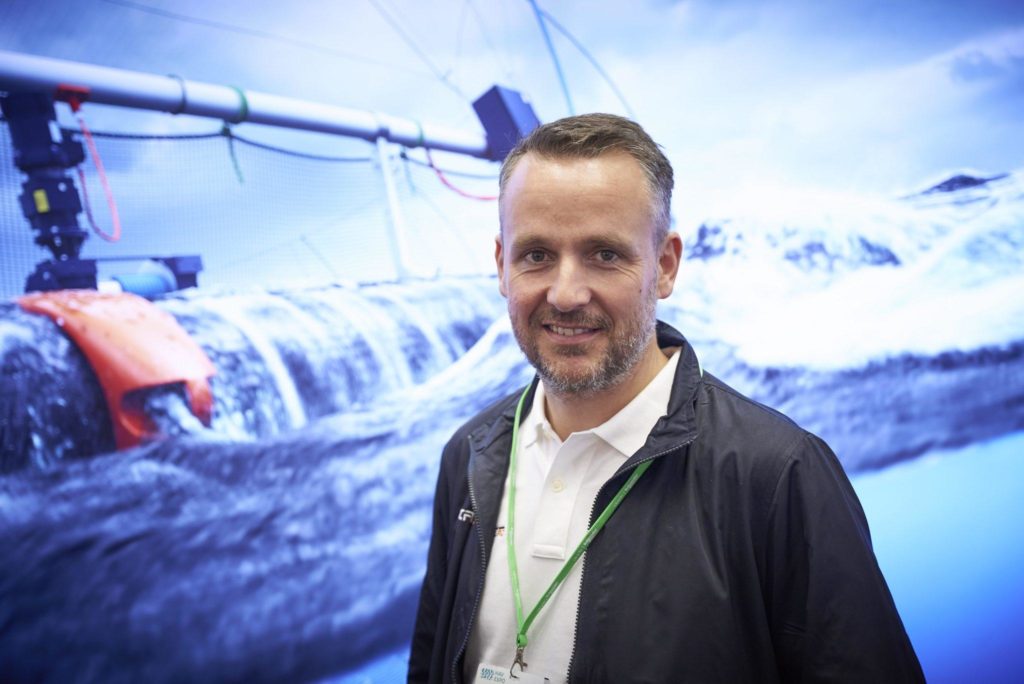
Njål Tvedt, Regional manager South / Sustainability ambassador in ScaleAQ
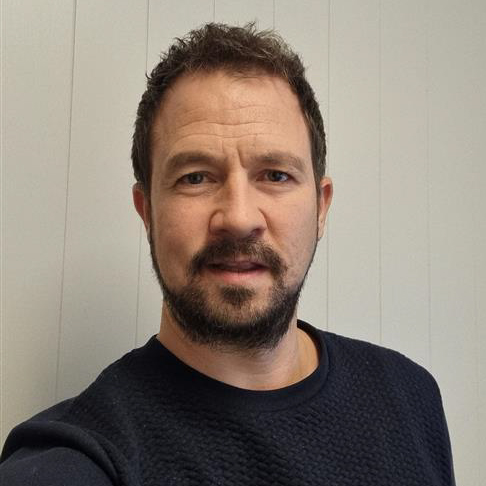
Eivind Sæverud, Project manager sea in Bremnes Seashore
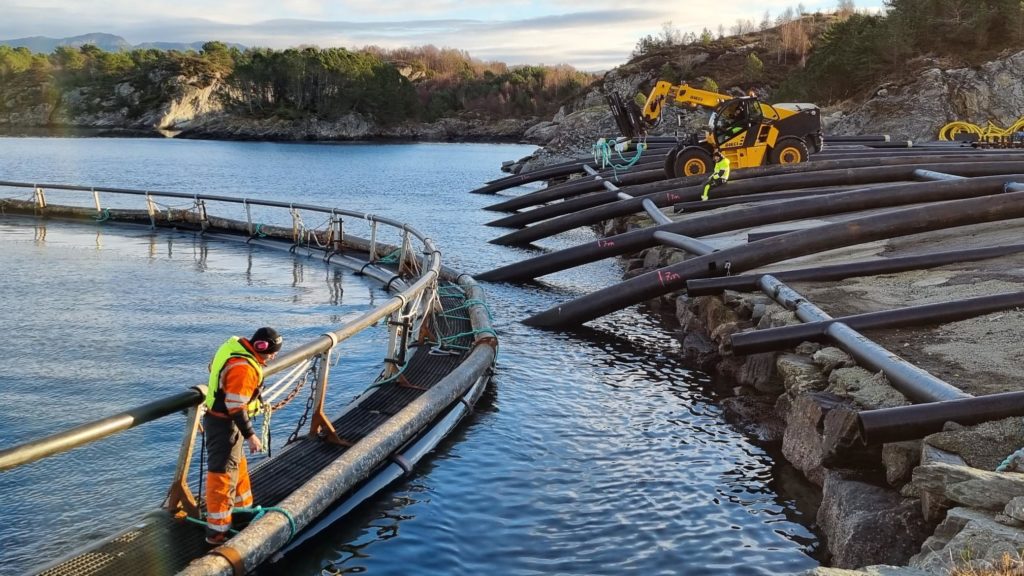
The floating collar is prepared to be taken up on land
Makes a difference
That opinion is shared by another fish farmer, area manager Ole Kristoffer Lundberg at Varde Fiskeoppdrett, who owns the second pen currently having its service life extended.
— When possible, we must reuse the resources we already have. In addition to our great personal commitment to impacting our local environment as little as possible, our customers expect us to document all our environmental work. This means that we are dependent on our suppliers to do everything possible to reduce their environmental footprint, and that the entire value chain makes clear demands to one another.
— Overall, the lifetime extension of just this one pen will make quite a difference.
Lundberg is right. Not producing a new pen reduces the CO2 emissions by about 42 tonnes. If you also take into account transportation and the styrofoam, which is also reused, the total savings are more than 44 tonnes of CO2. That equates the total annual CO2 emissions of seven Norwegians.
In Norway, we throw away plastic equivalent to about 100 kg per person every year. Only one quarter of this is recycled.
— As individuals, we sort our waste, and everything helps us move in the right direction. Even so, personally I am quite proud to be involved in a project where we ensure that an amount of plastic equivalent to what hundreds of people throw away each year is now retained in our value chain. This really makes a difference, says Lundberg.
“[…] We ensure that an amount of plastic equivalent to what hundreds of people throw away each year is now retained in our value chain.”
– Ole Kristoffer Lundberg, Varde Fiskeoppdrett
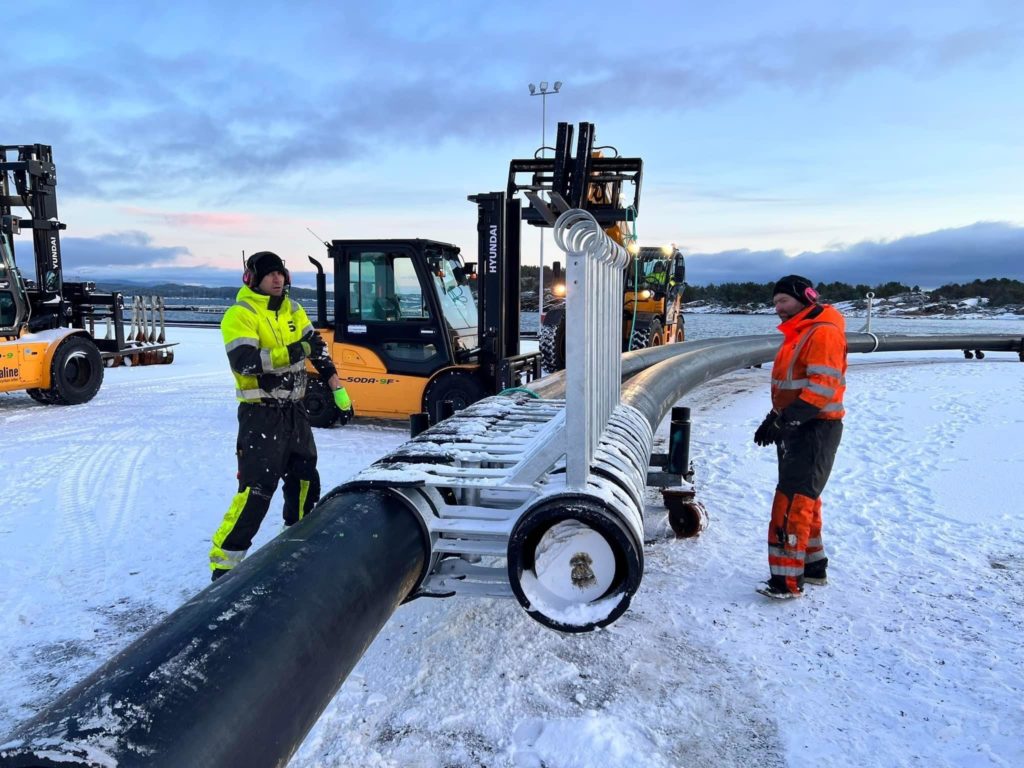
Floating collar with new steel brackets
Will extend the lifetime of pens in the future
Both Lundberg from Varde Fiskeoppdrett and Sæverud from Bremnes Seashore are looking forward to getting their first lifetime-extended pen back into operation – and believe that lifetime extension is here to stay.
Along with Bremnes Seashore and Varde Fiskeoppdrett, Scale AQ has committed to work in a structured and progressive manner to bring forward improvements to climate and environmental work. CSO Hanne Digre explains that Scale AQ works on many initiatives at the same time.
— In Scale AQ, we are committed to multiple UN sustainability goals, including goal number twelve, responsible consumption and production. We must do more with fewer resources. This means that we must consume less, whilst also moving away from solutions where we use and discard resources and towards circular solutions where we reuse resources and repair products.
— Through our initiative Scale Circular, we work to develop new solutions and value chains, by establishing circular circuits for reuse, repair, lifetime extension and the use of recycled materials, concludes Digre.
Offers lifetime extension as a product
Moving forward, we hope all our customers consider extending the lifetime of their pens, as an alternative to purchasing a new pen. In addition to reducing CO2 emissions and the production of virgin plastic, lifetime extension is currently profitable due to the high raw material prices in the market.
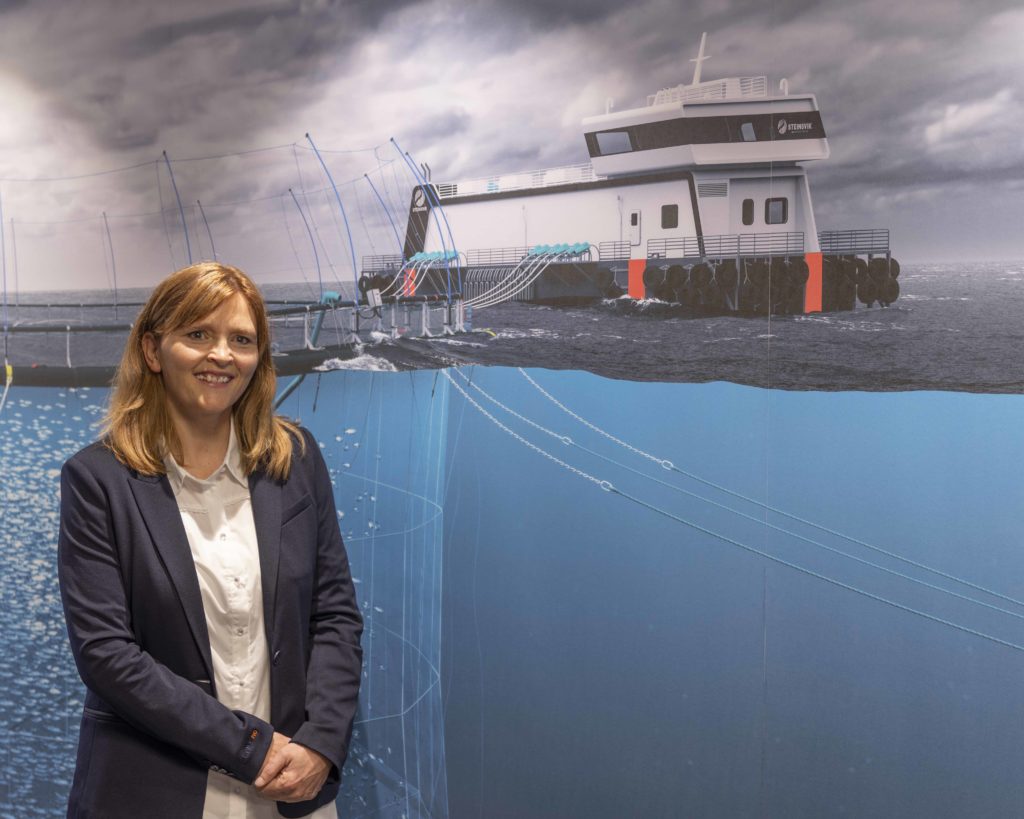
Hanne Digre, Director Sustainability in ScaleAQ